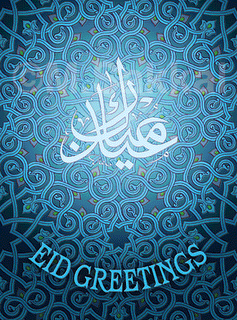In the name of Allah, the Most Beneficent, the Most Merciful
Mu`aadh ibn Jabal (radhiallahu `anhu) on Knowledge
Excerpted from works by Ibn Taymiyyah and Abu Nu`aim
The Prophet sallallaahu `alayhi wa sallam said about Mu`aadh ibn Jabal: "Verily, when the people of knowledge will be present before their Lord, the Mighty and Sublime, Mu`aadh will be one step ahead of them." [Saheeh, Ibn Sa`d, Aboo Nu`aim, at-Tabaraanee]
He, sallallaahu `alayhi wa sallam, also said about Mu`aadh: "…the most knowledgeable of them [my Ummah] about the lawful and the prohibited is Mu`aadh bin Jabal…" [At-Tirmidhee, Ibn Hibbaan, ibn Maajah, al-Baihaqee, al-Haakim, who declared it Saheeh]
Ibn Taymeeyah writes in al-Wasiyyah: "Part of Mu`aadh’s excellence further is that the Prophet, sallallaahu `alayhi wa sallam, sent him to the people of Yemen as a preacher on his behalf, a caller, a teacher of understanding in the Deen, a giver of religious verdicts, and a judge."
This is Mu`aadh, radhiallaahu ta`aalaa `anhu, to whom the Prophet, sallallaahu `alayhi wa sallam, also said: "O Mu`aadh! By Allaah, truly I love you." [Aboo Daawood, an-Nasaa’ee, ibn Hibbaa, Aboo Nu`aim, Ibn Khuzaimah and al-Haakim, who declared its isnaad to be saheeh]
Aboo Nu`aim reports some sayings of Mu`aadh himself about the excellence of knowledge, among which we find the following:
"Knowledge is a comforting friend in times of loneliness, it is the best companion during travels, and it is the inner friend who speaks to you in your privacy. Knowledge is the discerning proof of what is right and what is wrong, and it is the positive force that will help you surmount the trials of comfort, as well as those of hardships. Knowledge is your most powerful sword against your enemy, and finally, it is your most dignifying raiment in the company of your close companions."
"Through knowledge, Allah, blessed be His Name, raises some people in rank, and He makes them leaders in righteousness and models in morality. The vestige of their faith is avidly sought, their deeds are emulated perceptively, and people will seek and sanction their opinions solicitously and unequivocally. The heavenly angels seek their company and anoint them with their wings, every fresh or withered life they pass by implore Almighty Allah to forgive them their sins, even the fish in the oceans, the beasts of the lands and every bird of prey and migratory bird pray and solicit the mercy of Almighty Allah on their behalf. This is because knowledge revives the dead hearts and drives them out of darkness into light, and because knowledge is the light of the inner eyes that cures one’s blindness and restores his inner sight."
"The Muslim is a unique Ummah among the whole of mankind:
Their Land is ONE, their War is ONE, their Peace is ONE,
Their Honour is ONE and their Trust is ONE."
[Ahmad]

